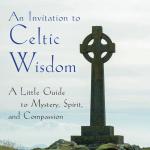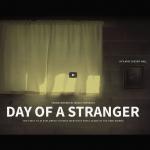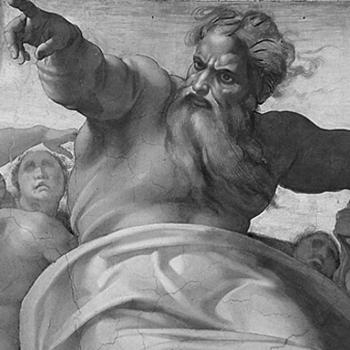Carl:
You are right that mysticism is missing in action in most churches — and true for religious communities outside of Christianity as well — most Jews are not Kabbalists, most Muslims are not Sufis, etc. But the church carries the DNA of mysticism, and the fact that most Christians are either indifferent or hostile to it is a mirror of the fact that most human beings, in general, are either indifferent to or hostile to mysticism. And if we take Ken Wilber at his word, most people are just not at a level of consciousness where they are capable of “receiving” advanced mystical teaching.
But I still maintain that walking away from the Church-as-carrier-of-the-mystical-DNA can often be a mistake. And that’s because the message we see again and again, across religions and across cultures, is that mystical wisdom needs community and mentorship and a commitment to service in order to blossom. Healthy religion provides all of these; secular society — well, let’s just say I haven’t seen much evidence of it.
“Why do I need to stay within my religion of origin if it’s not speaking to me or nourishing me?” Religion is a place to serve. It’s a place to learn the challenge of loving those who we find unlovable (most contemplatives have a very difficult time loving those who are indifferent to or hostile to contemplation. But those are precisely the people who often are our best teachers in love). In other words, don’t stay in religion for what religion can do for you — stay in it because it is a centuries-old community where we have opportunities to grow through humility, service, and compassion.
It seems to me that you see what I’m saying as “clinging to an institution.” But that’s not what I’m saying: if religion is just an institution, then sure, take it out back and put it out of its misery. Like so many Catholics, I’m over the “institution” when it just results in yet another abuse scandal.
But religion — in terms of what I’m advocating for — is far more than just an institution. It’s a community, it’s a brotherhood/sisterhood, it’s a wisdom lineage, it’s a mystical body. It’s a beautiful and complex neural network that the early Cistercians described as “bonds of charity.” Seen through the eyes of contemplative love, it is simultaneously both profoundly wounded and yet deeply beautiful. The woundedness evokes not disgust, but compassion. And the beauty, of course, evokes wonder.
Once again, I understand that many people must leave the institution — for a season, or for a lifetime. I’m not interested in judging what any one person’s path must take. But I want to avoid making a kind of dogmatic statement like “being a mystic leads to a place where religion just gets in the way.” I don’t believe that’s true — at least, not necessarily. It certainly wasn’t true for Meister Eckhart, or John of the Cross, or Julian of Norwich, or Teresa of Avila, or Thomas Merton, or Evelyn Underhill, or Thomas Keating, or hundreds of other great mystics, all of whom remain profoundly immersed in religious life even as they scaled the summits of Divine Union. Try to see with the eyes of love that religion means something deeper and truer than just the institution — and I think you’ll have a clearer sense of what I’m trying to say.
Finally, thanks for your kind words about keeping this conversation friendly and civil. I appreciate that (and reciprocate the sentiment!). At the end of the day, it’s okay to disagree. But it’s equally important to understand.
Aaron:
That definitely had me smiling.
I think we agree more than we disagree. Just perhaps a few miscommunications. I don’t see finding a different path as automatically going to secular society. I also don’t see it as a way of leaving community. I think one can find many supportive spiritual communities outside of the church. Be they groves, covens, or sanghas. Part of leaving religion and dogmatism is doing exactly what you describe: finding love, support, and community to help you connect with your deep self and the divine. One still has a religion and community. But sometimes as we journey deeper into a life of faith the community and the stories we grew up with no longer suffice. So we go to find other communities, other stories, that can help us continue on our path to divine union. So we trade Merton, Theresa of Avila, or Meister Eckhart for Mooji, Nisargadatta, Ajahn Chah, or even Gerald Gardner and Scott Cunningham. This could be temporary, or permanent, or it could be a regular switching back and forth or even an integration of the two (I have many friends who are Christian witches and they are absolutely lovely). This way we still have community, love, and support, but perhaps also a better story and community that supports us and our journey in a way that previously we didn’t or couldn’t have. For me druidry has offered that in a way Christianity never has. Yet I still hold Jesus and the holy trinity close to my heart. And the druid community is loving and helpful, is teaching me, and allows me space to still hold Jesus tender in my life. Does that make sense? I’m not advocating a loss of community or a life away from religion. I’m advocating a life and story found outside the church that is equally valid, loving, and supportive, but still very much a religion and community that touches deeply the mystery of the divine.













